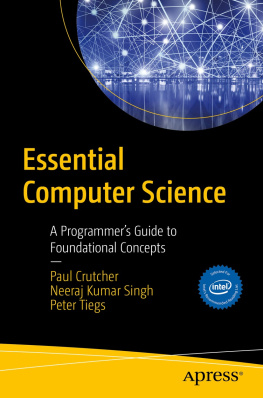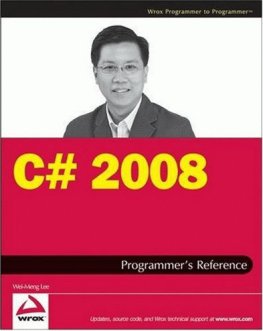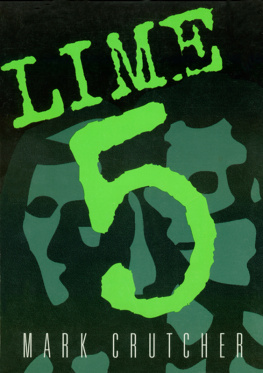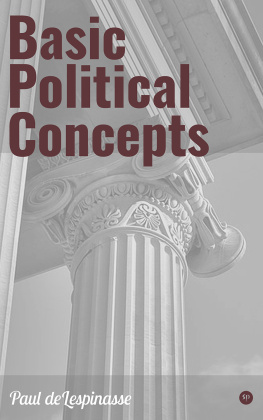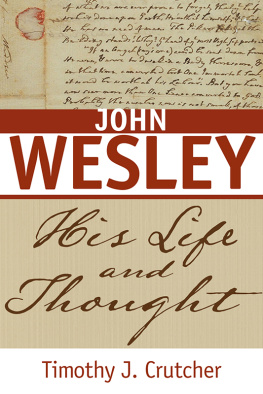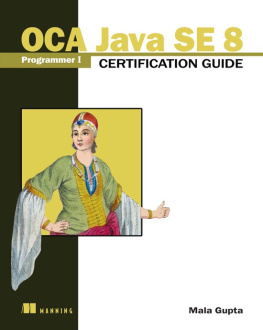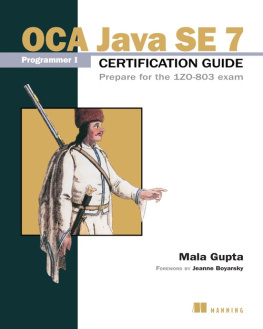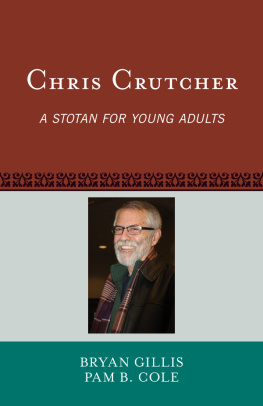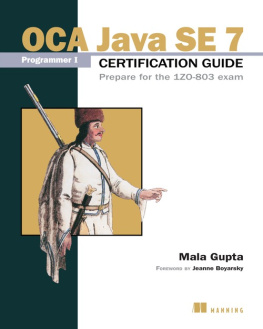Paul D. Crutcher - A Programmer’s Guide to Foundational Concepts
Here you can read online Paul D. Crutcher - A Programmer’s Guide to Foundational Concepts full text of the book (entire story) in english for free. Download pdf and epub, get meaning, cover and reviews about this ebook. year: 2021, publisher: Apress, genre: Home and family. Description of the work, (preface) as well as reviews are available. Best literature library LitArk.com created for fans of good reading and offers a wide selection of genres:
Romance novel
Science fiction
Adventure
Detective
Science
History
Home and family
Prose
Art
Politics
Computer
Non-fiction
Religion
Business
Children
Humor
Choose a favorite category and find really read worthwhile books. Enjoy immersion in the world of imagination, feel the emotions of the characters or learn something new for yourself, make an fascinating discovery.
- Book:A Programmer’s Guide to Foundational Concepts
- Author:
- Publisher:Apress
- Genre:
- Year:2021
- Rating:5 / 5
- Favourites:Add to favourites
- Your mark:
- 100
- 1
- 2
- 3
- 4
- 5
A Programmer’s Guide to Foundational Concepts: summary, description and annotation
We offer to read an annotation, description, summary or preface (depends on what the author of the book "A Programmer’s Guide to Foundational Concepts" wrote himself). If you haven't found the necessary information about the book — write in the comments, we will try to find it.
A Programmer’s Guide to Foundational Concepts — read online for free the complete book (whole text) full work
Below is the text of the book, divided by pages. System saving the place of the last page read, allows you to conveniently read the book "A Programmer’s Guide to Foundational Concepts" online for free, without having to search again every time where you left off. Put a bookmark, and you can go to the page where you finished reading at any time.
Font size:
Interval:
Bookmark:
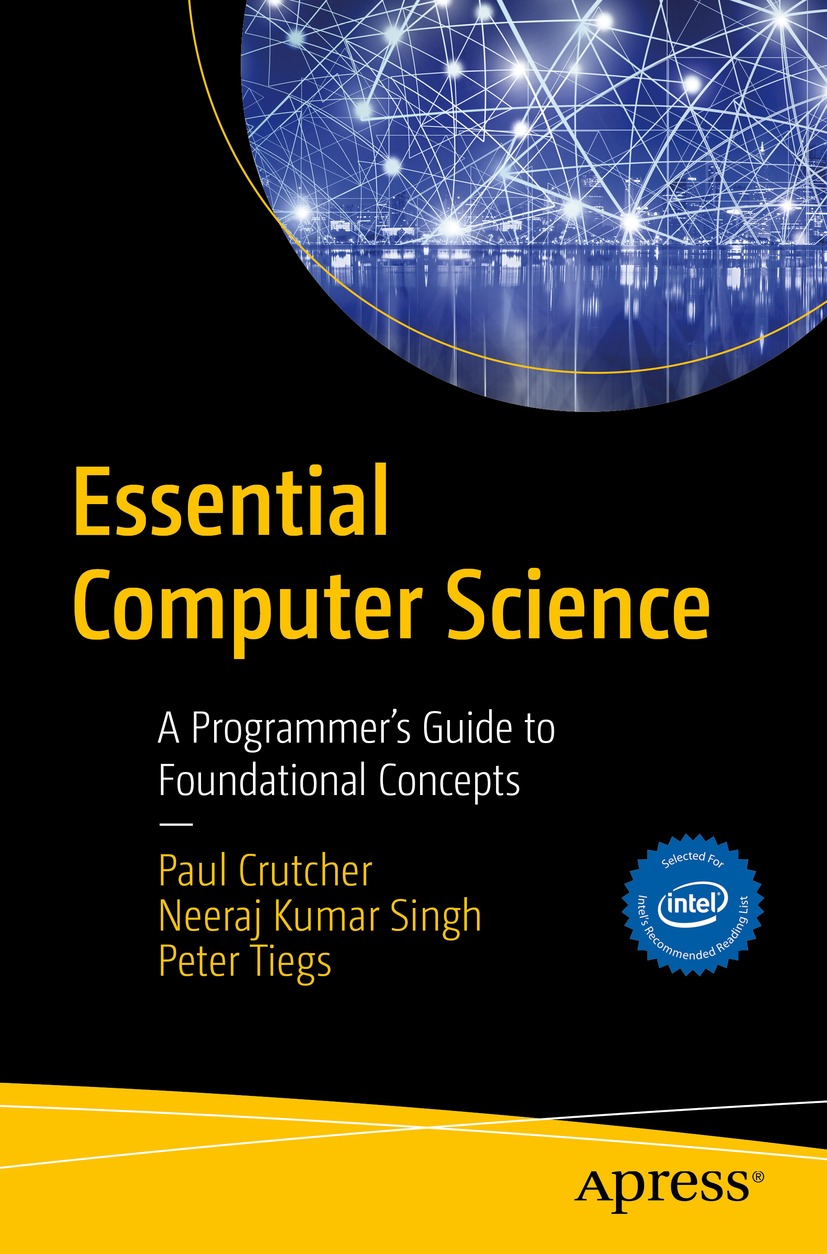

Any source code or other supplementary material referenced by the author in this book is available to readers on GitHub via the books product page, located at www.apress.com/9781484271063. For more detailed information, please visit http://www.apress.com/source-code.
This Apress imprint is published by the registered company APress Media, LLC part of Springer Nature.
The registered company address is: 1 New York Plaza, New York, NY 10004, U.S.A.
To my wife, Lisa, for her unending support and encouragement; to my sons currently studying computer science, Kyle and Cameron, may this be a bit of inspiration for their journey in life; and to the memory of my father, Edwin Lee Crutcher, who passed away while I worked on this book. I love you, Dad!
Paul
To my wife, Shilpi, for her unwavering support.
Neeraj
To Karen, Jane, Josephine, Henri, and Jeanette, my family, for all of their support, patience, and encouragement.
Peter
According to code.org, there are 500,000 open programming positions available in the United States alone compared to an annual crop of just 50,000 graduating computer science majors. The US Department of Labor predicted there will be 1.4 million computer science jobs by 2020, however, only enough people to fill roughly 30% of these jobs. To bridge the gap, many people not formally trained in computer science are employed in programming jobs. While they are able to start programming and coding quickly, it often takes them time to acquire the necessary understanding and gain the requisite skills to become an efficient computer engineer or advanced developer.
The goal of the book is to provide the essential computer science concepts and skills necessary to develop a sound understanding of the field. It focuses on the foundational and fundamental concepts upon which expertise in specific areas can be developed, including computer architecture, programming language, algorithm and data structure, operating systems, computer networks, distributed systems, security, and more.
This is a must-read for computer programmers lacking formal education in computer science. Secondarily, it is a refresher for all, including people having formal education in computer science as well as anyone looking to develop a general understanding of computer science fundamentals.
Overall, we authors have attempted to make it as lucid as possible, so people with limited or even no background in computer science can pick up the book and go through the journey to develop a good understanding of computer science. Were excited to have you on board.
We would like to express gratitude to the people who helped us through this book, some of them directly and many others indirectly. Its impossible to not risk missing someone, but we will attempt anyway.
First and foremost, we would like to sincerely thank our technical reviewer, Ken Knowlson, for meticulous reviews; it helped the book significantly. Thank you, Ken!
We would like to acknowledge Prashant Dewan for writing Chapter of the book.
Thank you so much Rita Fernando, Susan McDermott, and all of the Apress publishing team for the outstanding work, help, guidance, and support; you have gone the extra mile to make the book what it is.
Above all, we thank our family and friends for their understanding and support and for being continuous sources of encouragement.

is a senior principal engineer at Intel Corporation, managing the Platform Software Architecture team in the Client Computing Group (CCG). Paul has worked at Intel for more than 25 years and has also worked at two smaller software companies. Paul has a degree in computer science, with expertise spanning software development, architecture, integration, and validation based on systems engineering best practices in multiple areas. He holds several patents and has multiple papers and presentations to his credit.
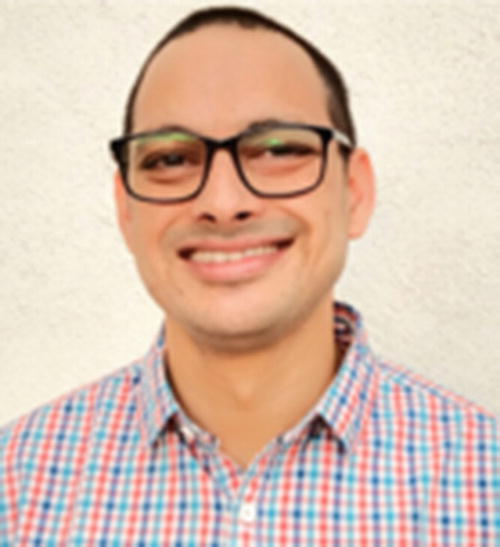
is a principal engineer at Intel with more than 15 years of system software and platform design experience. His areas of expertise are hardware/software (HW/SW) codesign, system/platform architecture, and system software design and development. Neeraj is the lead author of two other books, System on Chip Interfaces for Low Power Design and Industrial System Engineering for Drones: A Guide with Best Practices for Designing, in addition to many other papers and presentations.

is a principal engineer at Intel with around 20 years of software experience. Inside Intel, he often consults on DevOps topics such as build automation and source code branching. Over the last decade, Peter evangelized continuous integration and delivery as well as agile practices at Intel. Peter has written software at all levels of the stack from embedded C code to Vue.js. His programming language of choice is Python.
Font size:
Interval:
Bookmark:
Similar books «A Programmer’s Guide to Foundational Concepts»
Look at similar books to A Programmer’s Guide to Foundational Concepts. We have selected literature similar in name and meaning in the hope of providing readers with more options to find new, interesting, not yet read works.
Discussion, reviews of the book A Programmer’s Guide to Foundational Concepts and just readers' own opinions. Leave your comments, write what you think about the work, its meaning or the main characters. Specify what exactly you liked and what you didn't like, and why you think so.

